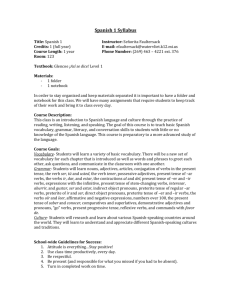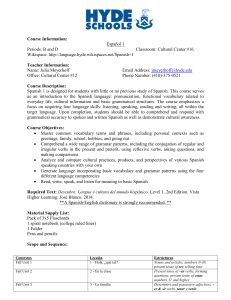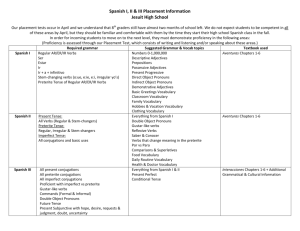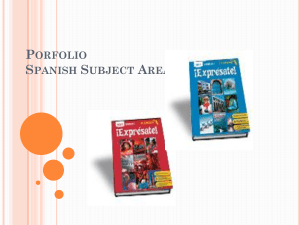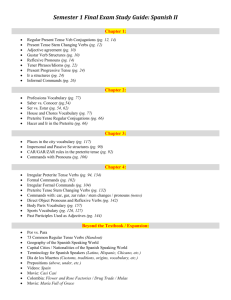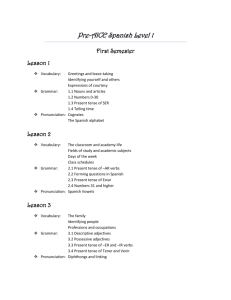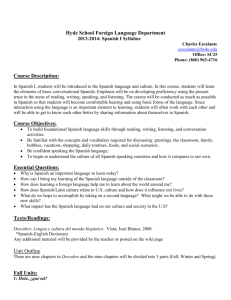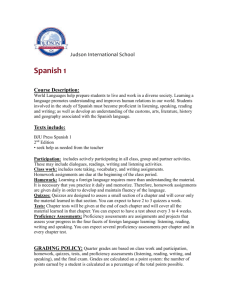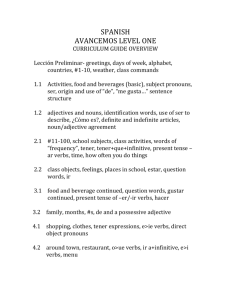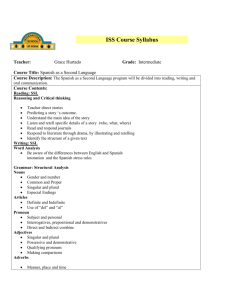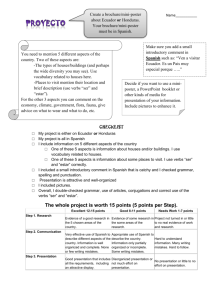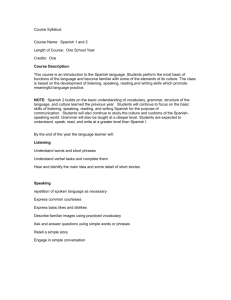Hyde Foreign Language Department
advertisement
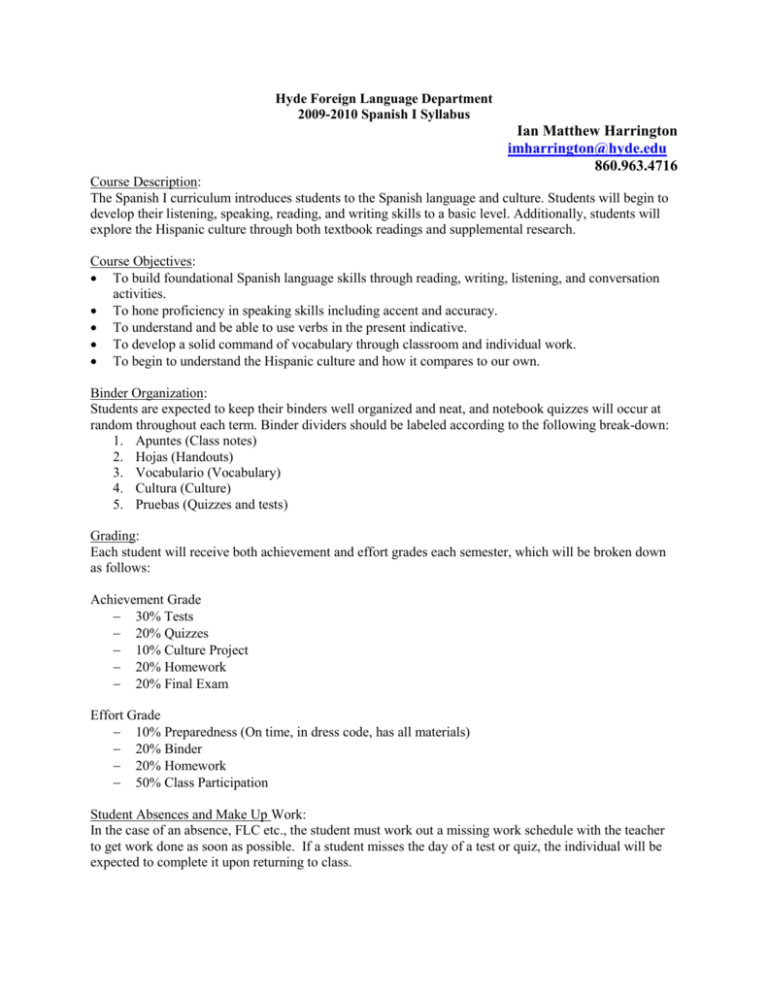
Hyde Foreign Language Department 2009-2010 Spanish I Syllabus Ian Matthew Harrington imharrington@hyde.edu 860.963.4716 Course Description: The Spanish I curriculum introduces students to the Spanish language and culture. Students will begin to develop their listening, speaking, reading, and writing skills to a basic level. Additionally, students will explore the Hispanic culture through both textbook readings and supplemental research. Course Objectives: To build foundational Spanish language skills through reading, writing, listening, and conversation activities. To hone proficiency in speaking skills including accent and accuracy. To understand and be able to use verbs in the present indicative. To develop a solid command of vocabulary through classroom and individual work. To begin to understand the Hispanic culture and how it compares to our own. Binder Organization: Students are expected to keep their binders well organized and neat, and notebook quizzes will occur at random throughout each term. Binder dividers should be labeled according to the following break-down: 1. Apuntes (Class notes) 2. Hojas (Handouts) 3. Vocabulario (Vocabulary) 4. Cultura (Culture) 5. Pruebas (Quizzes and tests) Grading: Each student will receive both achievement and effort grades each semester, which will be broken down as follows: Achievement Grade 30% Tests 20% Quizzes 10% Culture Project 20% Homework 20% Final Exam Effort Grade 10% Preparedness (On time, in dress code, has all materials) 20% Binder 20% Homework 50% Class Participation Student Absences and Make Up Work: In the case of an absence, FLC etc., the student must work out a missing work schedule with the teacher to get work done as soon as possible. If a student misses the day of a test or quiz, the individual will be expected to complete it upon returning to class. Extra Help: Students are encouraged to seek extra help when needed. Please try to schedule a time for extra help in advance so that I can help you to the best of my ability. Spanish I students additionally will be paired with students from a section of Spanish II. These students will serve as “Spanish mentors,” aiding with studying and other elements of the Spanish I curriculum. Sequence of Topics: The nine chapters in Descubre progress through lessons including both grammar and vocabulary in order to give students a solid foundation. As a class, we will proceed through the textbook in sequential order, and thus will be addressing the following concepts: Unit 1 2 3 4 5 6 7 8 9 Grammar Nouns/articles, present tense of ser, hay, telling time Present tense of –ar verbs, questions, present tense of estar Descriptive and possessive adjectives, present tense of –er and –ir verbs, present tense of tener and venir Vocabulary Alphabet, numbers 1-30, salutations, school objects Numbers 31 and higher, continued school terms Family, professions Present tense of ir, stemchanging verbs and verbs with irregular yo forms Estar with conditions and emotions, present progressive, ser and estar, direct object nouns and pronouns Saber and conocer, indirect object pronouns, preterite tense of regular verbs, demonstrative adjectives and pronouns Reflexive verbs, positive and negative expressions, preterite of ser and ir, verbs like gustar Preterite of stem-changing verbs, double object pronouns, comparisons, superlatives Irregular preterits, verbs that change meaning in the preterite, que and cual, pronouns after prepositions Pastimes, sports, places in the city Travel and vacation, months, seasons/weather, ordinal numbers Clothing/shopping, negotiating/buying, colors, adjectives Daily routine, personal hygiene, time expressions Food, descriptions, meals Parties and celebrations, personal relationships, stages of life Essential Questions: Why study Spanish? How can I bring my learning of the Spanish language outside of the classroom? How does learning a foreign language help me to learn about the world around me? How does my curiosity and active involvement in my learning help me to become a better citizen of the world? How do I understand my own culture and identity within the context of the Spanish speaking world? Syllabus composed by Katherine Wynen c.a. 2008
